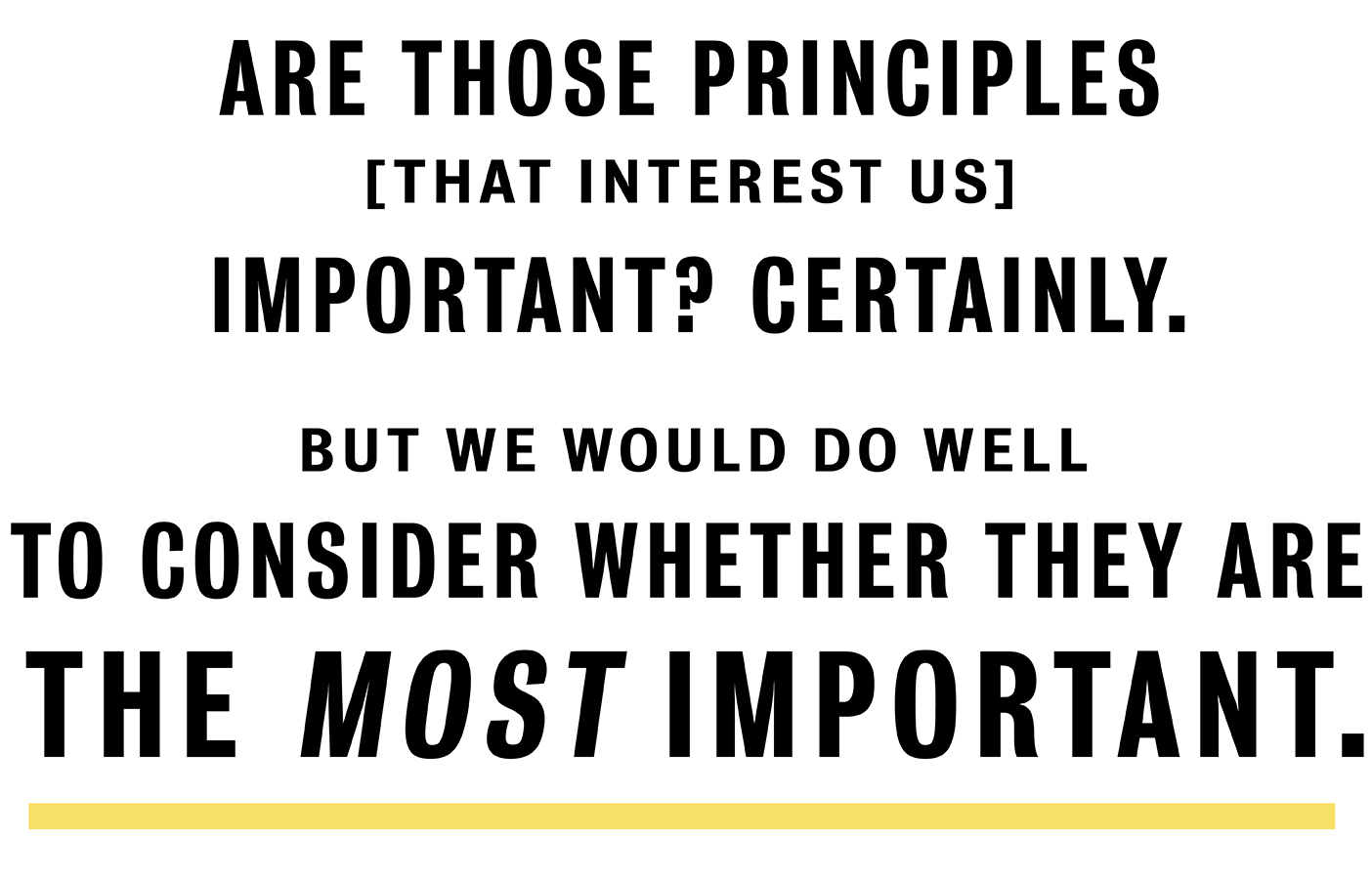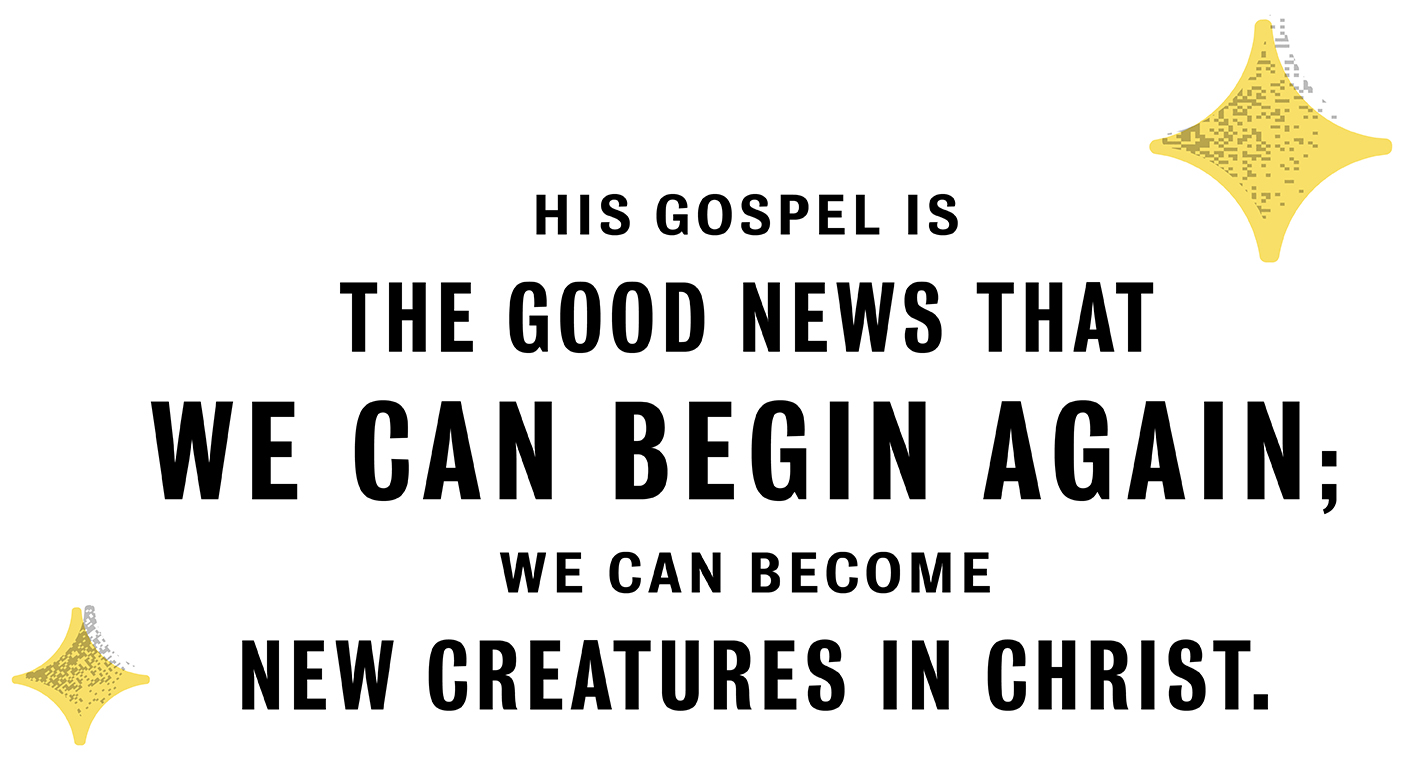5 Messages

All of God’s children—including you—need to hear these precious truths.
By Dieter F. Uchtdorf in the Winter 2022 Issue
In our travels around the world on behalf of the Church, my wife, Harriet, and I have visited with hundreds—perhaps thousands—of groups that have included both Latter-day Saints and friends. This beautiful world is such a diverse place, full of people from all kinds of backgrounds.
From our opportunities to teach and minister across the globe, Harriet and I have learned that while each one of God’s children is unique and has been shaped by a distinctive set of experiences, it is also true that we have one most significant attribute in common—we all are God’s children.
Our Heavenly Father’s desire is that our hearts are “knit together in unity and in love one towards another” (Mosiah 18:21). Though our circumstances may be different, our hearts are not. For this reason, there are certain messages that all of God’s children need to hear.

1. Move Toward the Light
When I was an airline captain, I would sometimes fly my Boeing 747 from Germany to the West Coast of the United States. On those flights west, across oceans and continents, the daylight seemed never to end. We took off in Germany at 1:00 p.m., and 10 hours later we touched down in California—at 2:00 p.m. the same day! The sun never set on us.
The opposite happened when flying east. Sunset came more quickly than it normally would. Leaving at 1:00 p.m. meant that in just a few hours we were engulfed in darkest night. Yet because of our direction and speed, in a few more hours we found ourselves bathed in blazing and often blinding light.
But whether I traveled west or east, the sun itself never changed course. It held its position, steadfast in the heavens, providing warmth and light to the earth. My access to that warmth and light depended on my location, direction, and speed. Similarly, God is in His heavens. He never changes. He never retreats. He does not alter His course.
But we do.
We all need God’s light in our lives, and yet we all have periods of time when we feel that we are in darkness—sometimes long periods of time.
When those times come, we can be assured that God, like the sun, is always there. When we incline our hearts to Him, He embraces us and fills our souls with light, warmth, knowledge, and guidance.

2. You Are Better Than You Think You Are
Even the most successful among us need this message from time to time. Consider, for example, Fred Astaire—the iconic actor, dancer, and singer. He starred in dozens of Broadway and Hollywood shows. When the American Film Institute ranked the top 25 male film legends of all time, Fred Astaire was number five on the list.¹
In one of his early auditions, they said of him: “Can’t act. Can’t sing. Balding. Can dance a little.”² Those close to Fred Astaire knew that he was tormented with feelings of inadequacy. Even so, through persistence and hard work, he developed his abilities and became known for his “elegance, grace, originality, and precision.”³
He was not the only one who struggled with self-doubt or endured criticism.
Walt Disney was fired from a newspaper because “he lacked imagination and had no good ideas.”⁴
Last year, one of Vincent van Gogh’s paintings sold for more than $15 million.⁵ However, during his lifetime, Vincent van Gogh sold only a very few paintings—and most of them went to family and close friends.⁶
We find many similar examples in the Old Testament. The reluctant warrior and hero Gideon thought of himself as an ordinary farmer. He said, “My family is poor in Manasseh, and I am the least in my father’s house” (Judg. 6:15). But an angel of God called Gideon a “mighty man of valour” (Judg. 6:12) and told him that with the Lord’s help, he would liberate his people from the oppressive yoke of a conquering nation.

The Lord took that self-doubting, humble farmer and turned him into a national hero—someone whose faith still inspires us today, more than 3,000 years later.
That seems to be the Lord’s way. He has always used the small and weak things of the world to bring about His glorious purposes (see Alma 26:12; 37:6).
Jeremiah believed he was too young to be a prophet (see Jer. 1:6–7).
Moses doubted himself because he was “slow of speech” (Ex. 4:10).
Enoch felt inadequate to preach repentance because, in his words, “all the people hate me” (Moses 6:31).
The Lord often accomplishes the most with those who feel the least accomplished.
He took a young shepherd and made him mighty in slaying an imposing giant and leading a fledgling nation into greatness (see 1 Sam. 17).
He took a young priest serving a wicked king and made him the leader of a band of refugee believers. Later, God called this same man to lead the entire church of the Nephite nation (see Mosiah 17–18, 23–27.
In our dispensation, God took a young, unschooled farm boy and mentored him until he became the great latter-day prophet who began “a marvelous work and a wonder” (2 Ne. 25:17; 27:26) that is now rolling forth unto every nation of the world.
Perhaps, at times, we see ourselves as a little less than we are. Unworthy. Untalented. Nothing special. Lacking the heart, mind, resources, charisma, or stature to be of much use to God.
You say you’re not perfect? You’re not good enough? Well, welcome to the club! You may be just the person God is looking for.
The Lord chooses the humble and meek—partly because they are humble and meek. In this way there is never a question regarding the reason for their success. These wonderful, ordinary people accomplish great things not because of who they are but because of who God is! For “what is impossible with man is possible with God” (Luke 18:27, New International Version).
God does not need people who are flawless. He seeks those who will offer their “heart and a willing mind” (D&C 64:34), and He will make them “perfect in Christ” (Moro. 10:32–33).

3. Learn to Love God and Your Neighbor
When a Pharisee asked Jesus which was the greatest of the commandments, the Savior established once and for all what our priorities should be:
1. Love God.
2. Love your neighbor.
These commandments (see Matt. 22:37, 39) should be the center of our every effort as a church and as individual disciples of Jesus Christ. When we wonder where we should put our focus as parents, siblings, Church leaders, ministering brothers and sisters, and members of The Church of Jesus Christ of Latter-day Saints, it is already decided.

I suppose that when we descended from the realms of heavenly glory to this earth, we did so with a sense of anticipation and perhaps a little apprehension. After all, we would not remember our premortal life. How would we find our way back to our beloved Heavenly Father? That was our overarching desire: to seek God, find Him, love Him, and follow Him.
We knew that there would be many unexpected challenges. Perhaps we even anticipated that the odds might be stacked against us. But we trusted our Father, and we were eager to prove our loyalty to Him (see Abr. 3:25).
Even so, it is easy to get caught up in other things. Even good things can distract us from our primary purpose. And I am not referring only to worldly distractions. Let’s face it: the canvas of the gospel is so broad and rich that we could spend a lifetime studying it and scarcely scratch the surface. We all have topics or principles that interest us more than others. Naturally, those are the things we gravitate toward, speak about, and emphasize in our church service.
Are those principles important? Certainly. But we would do well to consider whether they are the most important.
The ancient Pharisees compiled hundreds of rules and commandments from sacred writings. They made a great effort to catalog them, comply with them, and enforce others to live by them with precision.
Where did they go wrong? They lost sight of what was of most worth. They saw the multitude of rules as ends in themselves instead of as the means to an end.

Are we susceptible to the same mistake today? If we were to brainstorm, I am sure we could compile a list of latter-day expectations that would rival those amassed anciently. It is not to say that these rules and gospel topics are not important or valuable. They are part of the whole—they are branches of the tree, but they are not the tree. And if they ever become separated from the tree, they will have no life. They will not bring forth fruit that will remain (see John 15:16). They will wither and die (see John 15:1–12).
When we meet the Savior at the judgment bar, we will account for how we lived the two great commandments (see Matt. 25:31–39). We could use these commandments as a two-point diagnostic exam to evaluate ourselves as disciples of Jesus Christ and servants in His kingdom: How can we be better parents? How can we be happier? How can we better magnify our callings in the Church?
1. Love God.
2. Love our neighbor.
Yes, we cherish all the principles of the gospel. We “live by every word that proceedeth forth from the mouth of God” (D&C 84:44). And yet we must always remember that “all the law and the prophets” point to the two great commandments (Matt. 22:40). It is the foundation of who we are as His followers.
4. Conflict Is Inevitable, but Contention Is a Choice
Have you noticed that in many movies there comes a moment when someone says, “At least things can’t get any worse”? As soon as you hear those words, you know that things are about to fall apart. Do you ever feel like a character in one of those movies?
Just when it seems as though we have faced all the trials and heartaches we can handle, bigger ones come along. These conflicts come in a variety of shapes and sizes: An unwanted medical diagnosis. A wandering child or friend. The loss of a job. The passing of a loved one. A global pandemic.
Sometimes we think how pleasant life would be if only we didn’t have so much opposition.
Our Lord Jesus Christ—our model of perfection—did not live a life free of conflict. He was opposed throughout His ministry, and in His final hours He was betrayed by a friend, accused by false witnesses, slandered, beaten, bloodied, and crucified.
What was His response?
To some, He did not speak a word. To others, He spoke the simple truth—not in anger but with calm majesty. As others contended with Him, He stood in His place—trusting in His Father, calm in His testimony, and firm in the truth.

Conflict is inevitable. It is a condition of mortality. It is part of our test. Contention, however, is a choice. It is one way that some people choose to respond to conflict.
When we contend with others, we cause discord, dissension, resentment, and even rage. Harmful emotions almost always accompany contention: anger, hurt, jealousy, hostility, revenge, and malice—to name just a few.
Our world overflows with contention. We have 24/7 access to it: on the news, on social media, and even, at times, in our relationships with those we love.
We cannot adjust the volume on others’ bitterness, wrath, or rage. We can, however, choose our response. We can choose a better way—the Lord’s way. Of course this is easy to say and difficult to do.
To refrain from contending requires great discipline. But that’s what it means to be a disciple. Jesus taught:

He that hath the spirit of contention is not of me, but is of the devil, who is the father of contention. . . .
. . . This is my doctrine, that such things should be done away. [3 Ne. 11:29–30]
When God speaks—even when He calls us to repentance—His voice is not likely to be “a voice of thunder, neither . . . a voice of a great tumultuous noise, but . . . a still voice of perfect mildness, . . . [like] a whisper . . . [that pierces] even to the very soul” (Hel. 5:30).
As followers of Jesus Christ, we follow this example. We do not shame or attack others. We seek to love God and serve our neighbors. We seek to joyfully keep God’s commandments and live by gospel principles. And we invite others to do the same.
We cannot force anyone to change. But we can love them. We can be an example of what the restored gospel of Jesus Christ is all about. And we can invite all to come and belong.
When others throw insults at us, do we return fire?
There is a better way—the Lord’s way: To some, we say nothing. To others, we state with quiet dignity who we are, what we believe, and why we believe. We stand confident in our faith in God, trusting that He will uphold us in our trials.
Let us emulate the gentle Christ. And we do that through learning to love God and reaching out to bless others. Yes, there will still be conflict. But our all-powerful Father in Heaven has promised that He will fight our battles for us.
5. Our Heavenly Father Is a God of New Beginnings
As long as we mortals live on this wonderful and beautiful planet, we will make mistakes. Our human actions and failures may even hurt others or wound and damage the earth, our habitat—God’s perfect creation.
This is not a surprise to God.
To redeem each of us from our sins and imperfections, our Heavenly Father has sent His Only Begotten Son to be born to a mortal woman, live a perfect life, and make a grand, eternal sacrifice that cleanses us from sin and opens the door to holiness, peace, and glory throughout eternity. As we repent, change our ways, and have faith in Him, God will forgive our sins and “remember them no more” (D&C 58:42). To receive this divine gift of forgiveness, we need to forgive too.

Because of Jesus Christ, our mistakes, our sins, and even our everyday sorrows, pains, disappointments, frustrations, and shortcomings can be healed. Thanks to our Savior, such things need not prevent us from fulfilling our divine destiny!
If you are like me, when you kneel before God at the end of your day and review the choices you have made that day, certain moments may come to mind, and you might think to yourself, “I did alright there.” But also, if you are like me, you may recall other moments when perhaps you weren’t at your best.
If not for the Atonement of Jesus Christ, such moments would drag us down, discouraging us from moving forward. Instead, the Savior invites us: “Come unto me, all ye that labour and are heavy laden, and I will give you rest” (Matt. 11:28). He offers forgiveness and strength to improve. Because of Jesus Christ, we can leave our burdens behind, resolving each day to better follow Him, the Perfect One.
Our Heavenly Father is the God of new beginnings. Every day, every hour, can be a fresh start—an opportunity to renew ourselves in the Holy Spirit and become better at walking as true and faithful disciples of the Savior. His gospel is the good news that we can begin again; we can become new creatures in Christ (see 2 Cor. 5:17).
I am not suggesting that we diminish or trivialize our sins and mistakes. We do not brush them under the carpet or try to hide them. On the contrary, to receive God’s forgiveness, we must confess our sins. Only when we fully and honestly acknowledge our weaknesses and failures can we learn from them and overcome them. We must humbly assess where we are before we can change course and progress to where we want to be.
In other words, we must repent!
As you partake of the sacrament, remember the covenant you made at baptism to take the Savior’s name upon yourself and to walk in the path of discipleship. Approach the mercy seat of God and, in humility, lay your sins before Him as an offering of sacrifice and plead for His mercy. Recommit to loving and serving Him and to loving and serving others. Ask for His blessing as you dedicate your thoughts and actions to His service—and you will feel the hand of God stretching out over you.
The God of the universe will infuse you with the strength and motivation to do better. There will be mistakes and stumbles in the future. But just as each sunrise signals the beginning of a new day, each time we repent, we make a fresh start on our path of discipleship. Over and over, day after day, we can begin again.
God yearns for you to come to Him. His mercy is sufficient to heal your wounds, inspire you to move forward, cleanse you of sin, strengthen you for trials to come, and bless you with hope, wisdom, and His peace.
If you desire it with all your heart, God will guide you through this mortal life, and He will wait with open arms to embrace you in the Resurrection. No matter our shortcomings, no matter our flaws, God can heal, inspire, and cleanse us. For He is the God of new beginnings.

These Messages Are for You
I pray that in these messages for all, you have also felt messages for you. I trust that you have been listening with your heart to the voice of the Holy Spirit. Please act on the promptings you have received.
I extend to you my love and blessings as an apostle of the Lord Jesus Christ. I love you. I pray for you. Like you, I am a poor pilgrim who strives imperfectly to walk the path of discipleship and who hopes to fulfill the great desire of our Heavenly Father for us to return to Him and live “in a state of never-ending happiness” (Mosiah 2:41). That you may find hope, strength, and joy in your journey, that you may find God and love Him with all your heart, and that you may strive to bless the lives of others, this is my prayer.
Dieter F. Uchtdorf, a member of the Quorum of the Twelve Apostles of The Church of Jesus Christ of Latter-day Saints, delivered this BYU Education Week address on Aug. 17, 2021. Find the full text, audio, and video at speeches.byu.edu.
Feedback: Send comments on this article to magazine@byu.edu.
NOTES
- See “AFI’s 100 Years . . . 100 Stars: The 50 Greatest American Screen Legends,” Lists, American Film Institute.
- In John E. Mueller, Astaire Dancing: The Musical Films (London: Hamish Hamilton, 1986), p. 7.
- Wikipedia, s.v. “Fred Astaire.”
- Colleen Kane, “Successes That Almost Weren’t,” Slideshows, CNBC, Nov. 18, 2011.
- See Rob Picheta and Chloe Adams, “Unseen Vincent van Gogh Painting of Paris Sells for $15.4M,” Style, CNN, March 29, 2021.
- See “How Many Paintings Did Vincent Sell During His Lifetime?” Vincent van Gogh FAQs, Van Gogh Museum.




